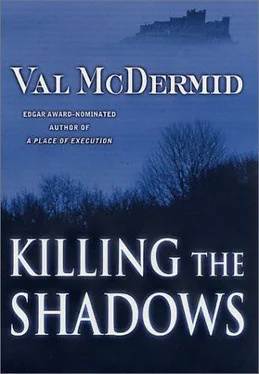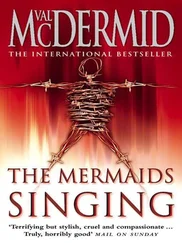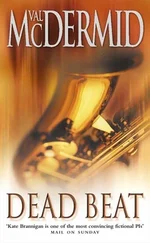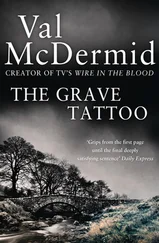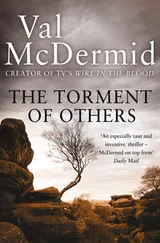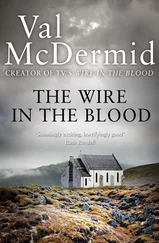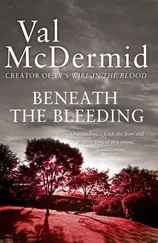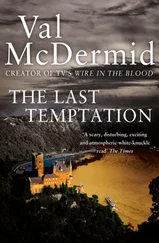“I think that’ll make him very angry,” Fiona said. “Which will almost certainly work to your advantage. You’ve obviously thought it through very carefully.” Now go away and leave me alone, she thought. “Let me know how you get on.”
He was still thanking her for her profile when she put the phone down. So let him think she was a rude bitch. She was past caring. Fiona headed straight for her e — mail program and started to write a new message. Kit wouldn’t answer the phone when he was writing, but she knew he checked his e — mail every hour or so.
From:Fiona Cameron [fcameron@psych.ulon.ac.uk]
To:Kit Martin [KMWriter@trashnet.com]
Subject:Re: Advice
Remember the message on the front of The Hitchhiker’s Guide to the Galaxy? Well, DON’T PANIC. I didn’t want to alarm you this morning. I had an idea, but I wanted to run it past Steve first. Overnight I discovered that the locals think the Garda have arrested the wrong man for Jane Elias’s murder. Taking into account Drew’s death and Georgia’s disappearance, I had to think about the possibility of a serial offender. So I took a look at And Ever More Shall Be So and was disturbed by certain parallels I found there. I’ve had a meeting with the officer in charge of the case in the City of London Police, and the good news is that they’re taking me seriously. The bad news of course is that if I’m right, then Georgia is probably, as we feared, dead. And the worst news is that there may be other killings. And of course, the police are already saying they don’t want to issue a general warning and start an unwarranted panic, not least because they don’t have the staffing levels to offer people any protection… There is NO REASON to suppose you’re specifically at risk (and yes, I still think the death threats are probably unrelated to the murders), but it makes sense to take precautions. Don’t answer the door to strangers. Don’t go anywhere alone. I mean, anywhere. Fuck bravado, I want you safe. I’m at work if you need to talk. Departmental meeting 2–3, seminar 3.30-5, home by 6. I hope.
I love you. Keep safe. F.
She hit the send button and watched her message disappear into the ether. The logical part of Fiona’s mind knew that she could not save Kit if someone was determined to kill him. But she could adopt the alarm principle. A burglar had once told her that security systems on private houses were no deterrent to the determined raider. If he wanted to get into a specific house, he could and he would. Where they were useful was in putting off the casual burglar. “You gotta make the house next door look like an easier option,” he’d explained. Well, if the price of Kit’s life was making someone else look like an easier option, Fiona was prepared to do that.
Afterwards, she’d live with the consequences. For now, what was important was keeping Kit alive.
In spite of what she’d said to Fiona, Sarah Duvall was conscious that she owed a duty to potential victims. She’d always been a proponent of preventative policing, but it acquired a new urgency when murder was the crime in question rather than burglary or street crime. Her first priority was the preparation of an application for a search warrant for Smithfield Market, but once that was under way, she had turned her attention to what else she could usefully achieve.
Because she’d never worked with Fiona, Duvall recognized she was probably far more sceptical of her insights than Steve Preston, who seemed to regard the psychologist as virtually infallible. So she was wary of Fiona’s contention that the death threat letters were unlikely to be the work of the murderer. Duvall didn’t believe in coincidence. In her book, even synchroniciry was suspect. She simply couldn’t believe that a serial murderer happened to be targeting thriller writers at the same time as a completely different individual was sending them death threats. Either they were one and the same person, or the letter-writer had inside knowledge. So if she could go some way towards identifying the source of the letters, she would either have uncovered the identity of the killer or at the very least, someone who might lead her to her culprit.
While she wasn’t willing to take everything Fiona had said at face value, Duvall was prepared to acknowledge common sense when she heard it. And it seemed to her that it was more than likely that the letter-writer could well be either a frustrated wannabe writer or someone whose career had crashed and burned. If that were the case, then the chances were that there were authors’ agents and publishers’ editors who would have come into contact with the writer of the letters and who might even be able to make a guess at their creator. These people worked with words; it wasn’t beyond the bounds of possibility that they might recognize the prose style of the writer.
So she had set one of her team the task of identifying appropriate authorities, including an expert in the genre of crime fiction. As a result, she had arranged a breakfast meeting for the following morning with two leading agents and three editors in the field. They had no idea what she wanted to talk to them about, though she had impressed them both with the urgency of her request and the need for confidentiality.
But that was for the morning, and she’d work out how best to handle that later. What she had to focus on now was finding out who might be the future targets of her putative serial killer.
It was a goal that had brought her to Clapham and a quiet row of terraced cottages set a couple of streets back from the Common. According to her detective constable, what Dominic Reid didn’t know about contemporary crime fiction wasn’t worth knowing. As the car pulled up to the kerb a couple of houses away from Reid’s, Duvall switched on the interior light. “Give me a minute,” she said to the DC who was driving her. She used the time to refresh her memory on the brief he’d prepared for her earlier.
Dominic Reid, forty-seven. He’d started off working in BBC Radio, then branched out as an independent producer. His company currently made a couple of Radio Four quiz programmes, and he had a list of credits in radio documentary, mostly concerning one aspect or another of mystery writing. He’d written a guide to crime fiction for a major book selling chain, reviewed the genre for a couple of magazines, and had recently published Paging Death, a critical study of modern British crime fiction. If anyone could tell Duvall who might be in the sights of a serial killer, it was Reid. “Do you read this stuff?” she asked the constable. “Crime novels?”
He shook his head. “I tried to read one once. I counted five mistakes in the first twenty pages, so I binned it. Too much like a busman’s holiday. What about you, ma’am?”
“I never read fiction of any kind.” Duvall sounded like a tee totaller talking about strong drink. She clicked off the light. “Let’s do it,” she said.
Reid opened the door almost before the twin tones of the bell had died away. He was a lean, gangling man with an engaging, bony face under a thatch of untidy greying blond hair. “Detective Chief Inspector Duvall?” he asked, suppressed excitement obvious in his expression.
“Mr. Reid,” Duvall acknowledged with a nod. “Thank you for agreeing to see me at such short notice.”
He stepped back, gesturing that they should enter. Duvall and the DC filed into the hall. There was barely room for the three of them; stacks of books leaned against one wall, reaching above waist-height. They followed Reid into the front room, where three walls were lined with shelves crammed with more hardbacks. Apart from books, the only furnishings in the room were four battered armchairs and a couple of occasional tables. On one chair, a large black and white cat lay curled, not twitching so much as a whisker at their arrival.
Читать дальше
Конец ознакомительного отрывка
Купить книгу
